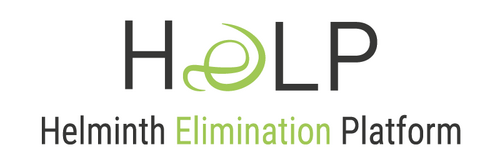1 September, 2021
Partnership with Swiss TPH in the HELP-OFZ study
The recording, interpretation and reporting of adverse events is of utmost importance for patient safety when conducting clinical trials. The DKF offers the "Pharmacovigilance" service for this purpose.
The Swiss Tropical and Public Health Institute (Swiss TPH) is sponsor of a phase 1 study with a study centre in Tanzania. In the study, the drug oxfendazole, already used in veterinary medicine, is being tested for the first time in tablet form on healthy volunteers.
Oxfendazole is to be used to treat the worm disease onchocerciasis. The parasites can also reach the eyes as microfilariae and cause visual impairment and blindness ("river blindness"). The name "river blindness" is derived from transmission by the blackfly, which usually breeds around watercourses and transmits infectious worm larvae via bites. Worm diseases belong to the "neglected tropical diseases" (NTDs) and affect a large part of the population in low-income countries.
In a phase 1 study, particular attention is paid to the safety of the investigational product. In the HELP-OFZ study, DKF acts as sponsor representative for all safety-related tasks. This includes the medical interpretation and monitoring of all occurring adverse events as well as the reporting to the competent authorities.
Bettina Bannert, MD, and Madeleine Vollmer, PhD, from the DKF Regulatory Affairs Team are entrusted with these tasks and are in close contact with the local study team from the study center in Tanzania and the sponsor Swiss TPH.
On the Swiss TPH side, the study is led by Eveline Ackermann, MSc, Project Leader Clinical Operations Unit at the Department of Medicine. The clinical trial is being conducted as part of the HELP consortium (Helminth Elimination Platform).

The HELP Consortium is a public-private partnership led by the Swiss TPH and consists of research institutes, universities, non-profit organisations and pharmaceutical companies.
Aims to establish a research and development pipeline for the development of anthelmintics with a focus on onchocerciasis and soil-transmitted worm infections, which are among the most important "Neglected Tropical Diseases" (NTDs).
HELP is funded by the European Union's research and innovation programme. Horizon 2020 of the European Union.
